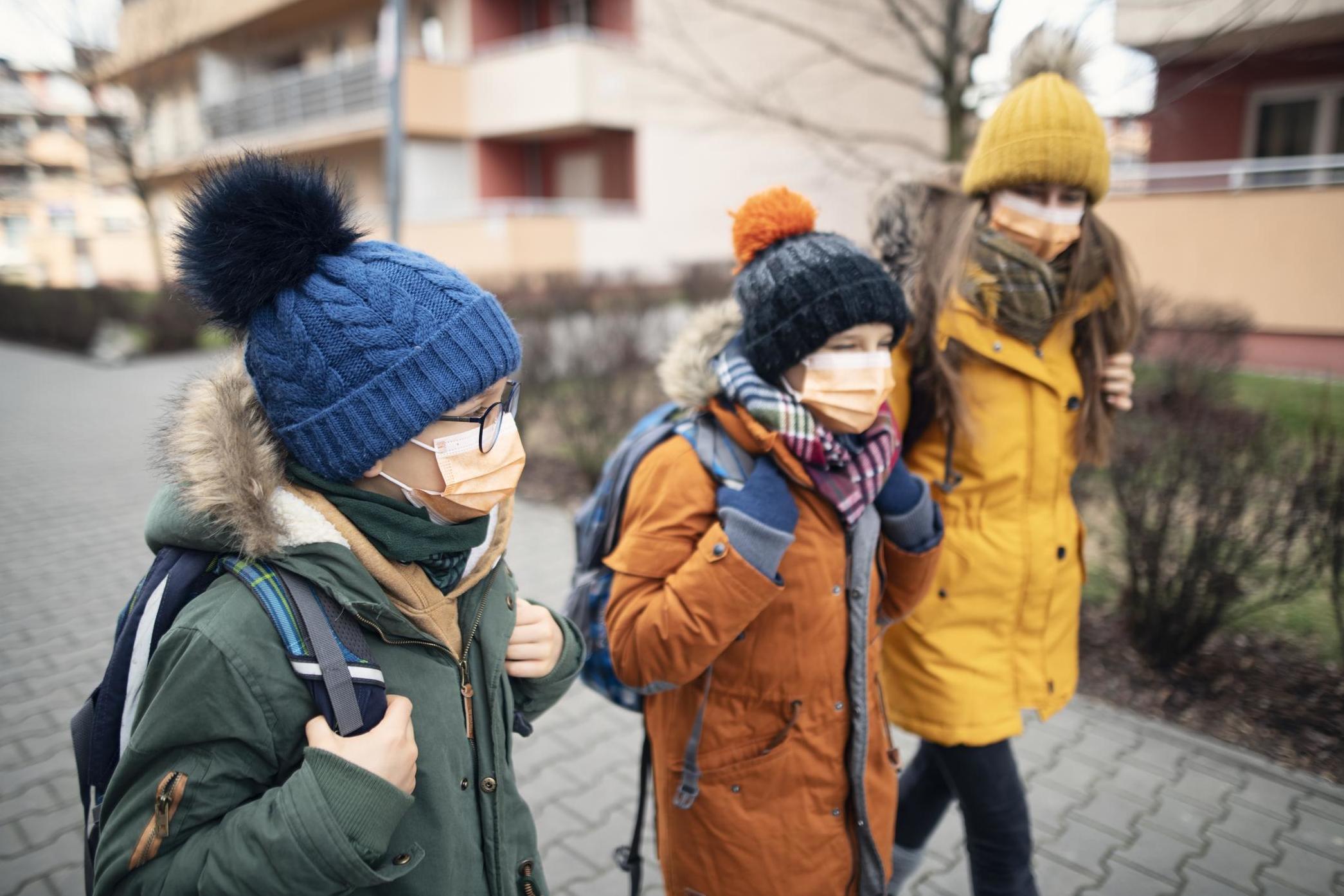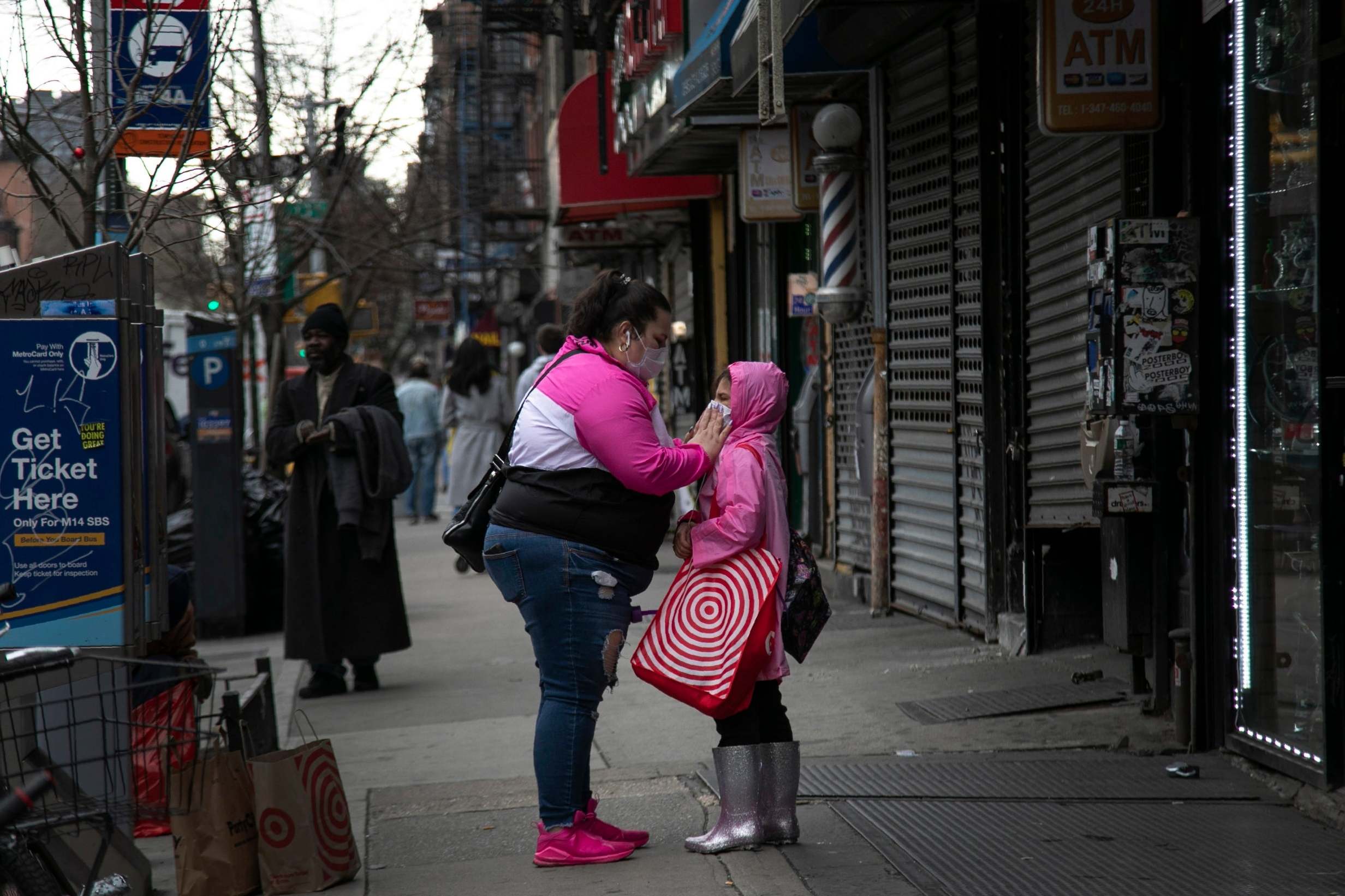The Independent's journalism is supported by our readers. When you purchase through links on our site, we may earn commission.
In America people will die from pandemic poverty not just coronavirus
My small family is rarely factored into scenarios, emergency or otherwise, where the dominant unit is assumed to be two parents at home, writes Alison Stine

Your support helps us to tell the story
From reproductive rights to climate change to Big Tech, The Independent is on the ground when the story is developing. Whether it's investigating the financials of Elon Musk's pro-Trump PAC or producing our latest documentary, 'The A Word', which shines a light on the American women fighting for reproductive rights, we know how important it is to parse out the facts from the messaging.
At such a critical moment in US history, we need reporters on the ground. Your donation allows us to keep sending journalists to speak to both sides of the story.
The Independent is trusted by Americans across the entire political spectrum. And unlike many other quality news outlets, we choose not to lock Americans out of our reporting and analysis with paywalls. We believe quality journalism should be available to everyone, paid for by those who can afford it.
Your support makes all the difference.As Covid-19 spreads, health experts have instructed businesses, schools and parents to plan. Plan to stockpile necessary prescriptions, plan to avoid large gatherings of people and plan for extended school or work absences. None of those plans include me.
As the single mother of a young child, my small family is rarely factored into scenarios, emergency or otherwise, where the dominant family unit is assumed to be two parents at home.
I’ve been a single mother since my ex-husband left when my now nine-year-old was a baby. As his father lives more than 500 miles away, I have grown used to making all my child’s medical appointments, attending recitals and parent teacher conferences, arranging all playdates, and planning all birthdays alone. But some things you cannot get used to or prepare for, like handling a pandemic solo.
As schools rapidly begin close for long periods due to the coronavirus, who will care for the children in one-parent homes? How can single parents hold onto their jobs, and any sense of economic security? The pandemic of Covid-19, perhaps like no other emergency in recent times, has exposed the lack of infrastructure, support, resources and care for the most vulnerable among us, including single mothers.
My son’s school has announced it will be suspending classes for three weeks, after a mandate from the governor of our state, Ohio. Coming on the heels of spring break, this makes at least a month that local children will not be in school. For many people, this means a loss of income. For single parents, it may also mean finding money to feed children who eat free or reduced-price meals at school, and with no other parent to pitch in, coming up with hundreds of dollars of sudden, unexpected childcare costs.
Though many businesses are now pivoting to online work, that won’t be a huge help to more rural or poverty-stricken parts of the country like my own, where many people have shift jobs, working in warehouses, healthcare, administration or maintenance. We don’t have reliable internet where I live in central Appalachia, so remote work and school isn’t even a possibility in many cases. Households may only have one computer or phone with multiple family members trying to use it for work or school. Working at home will also be extremely difficult for single parents like me, alone with children who need care.
Single mothers are more likely to have our savings drained by the high costs of raising children alone, and many of us never recover financially
Laid off from my previous job as an editor, I now work full time as a freelancer. The silver lining of this is that I work at home always; I’m here for my son. The bad news is if I don’t actually work, my son and I don’t actually eat. As I’m not a regular employee of a company, I earn no guaranteed paycheck and get no time off or sick days.
I’m not alone in this. According The Bureau of Labour Statistics, four in 10 parents had no sick leave at all in 2011. No federal law has been passed for paid sick leave, and according to the National Conference of State Legislatures, only 12 states and Washington DC have laws requiring employers to provide paid sick leave for workers.
Jobs in the service industry, gig economy, and retail are the least likely to have sick days – and these are overwhelmingly the kind of jobs that single mothers can get. We have gaps in our employment, credit and educational history due to having to take time out to be primary caregivers. Single mothers are more likely to have our savings drained by the high costs of raising children alone, and many of us never recover financially. Half of single mothers make less than $30,000 (£25,600) a year, according to The New York Times. Divorce financially punishes women significantly more than men, with becoming a single mother one of the leading reasons women go into poverty.

I’m in this camp, living below the poverty line, as about 30 per cent of single mother-led families do, according to the US census. How can we afford to purchase two weeks’ worth or more of groceries at a time? I’ve stocked up on beans, rice, pasta, peanut butter and soup; food that both keeps and is relatively inexpensive. But to do so meant grocery bills that were double what I budget for, at a time when my work is slow. The feast or famine nature of freelancing makes it difficult to plan for normal bills, let alone the bills of a pandemic. Buying and freezing a lot of extra meat and pricey prepared foods was out of the question for my family.
I’m also not sure how I can afford the extra books, workbooks, games, art supplies and activities to keep my home-from-school child active and entertained. Our public library has shuttered its doors, the closure that sent the most panic through me.
The last time I remember regularly sleeping more than six hours a night was a decade ago, before I had a child
We are extremely fortunate in that neither my child nor I take regular prescription medication, but we both need expensive, over-the-counter allergy medication to stay well, and stocking up on pain and fever relievers for adults and children, as advised, also costs a lot, especially in our era of price gouging.
How can you stay well when you’re barely staying afloat? The advice to get a lot of sleep, eat well, and exercise to try to avoid the virus also seems especially punishing to single parents. The last time I remember regularly sleeping more than six hours a night was a decade ago, before I had a child.
Though rarely considered in policies ranging from the local schools to the federal government, single mothers have learnt to form our own alliances, developing a network of support even with no supportive co-parent in sight. I dreaded the beginning of the school year forms, freezing at the emergency contact page until a fellow single mom told me: put me down. I’ll be your emergency contact.
My son’s number one babysitter is the teenager of that single parent, who reached out to me the moment the school closure was announced, to let me know they’re here. Another single mom is forming a coop to take turns watching a small group of children, while my son and I are planning a neighbourhood book exchange, leaving books for trade on our porch.
I learnt of the power of a social network early into single motherhood: when my child was a baby, and a group of women – strangers to me – left home-cooked food on our doorstep for weeks.
I will rely on my fellow single mothers, my neighbours and my parents, who live an hour away, to get through the next few weeks or longer, as they will rely on me. But I’m not sure who will care for my son if I fall ill. One of the hard realities of parenting alone is when you are taking care of your sick child, you know you’re next. And no one is coming to relieve you.
People have and will continue to die from Covid-19. People also have and will continue to die from the poverty the pandemic is exposing. I work hard and save as much as I can. But like many people in America, I am one disaster away from ruin; a car repair or an unexpectedly high bill, which seem minor in comparison to the pandemic we’re staring down. For single parents, could that disaster be now?
© New York Times
Join our commenting forum
Join thought-provoking conversations, follow other Independent readers and see their replies
Comments